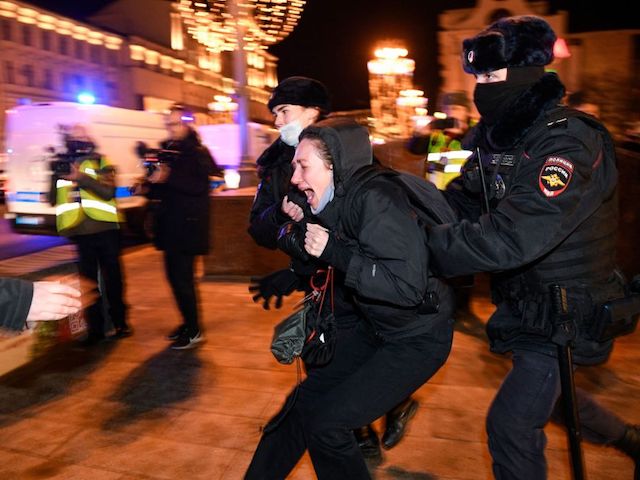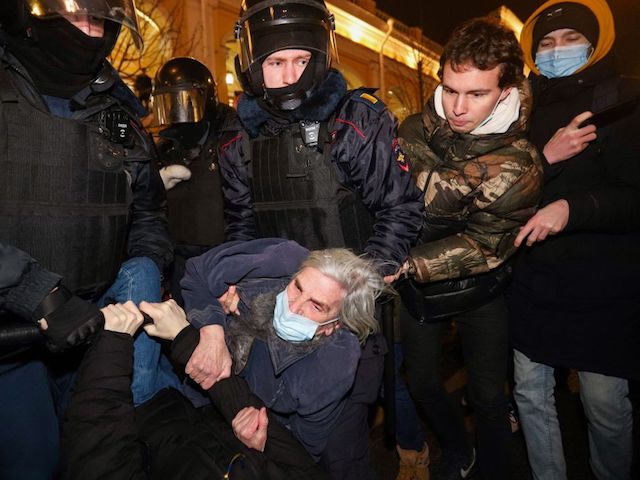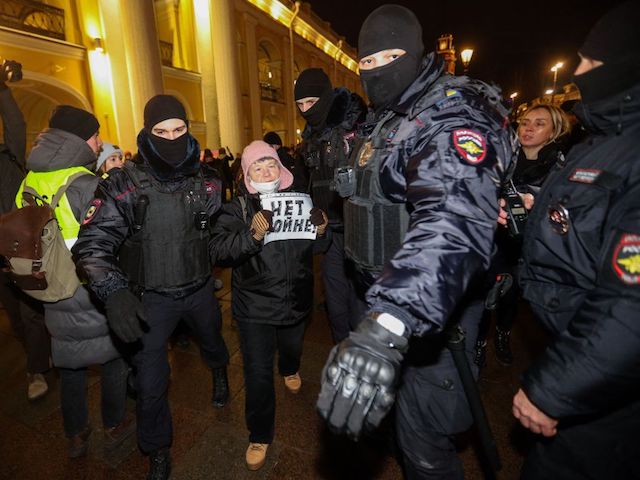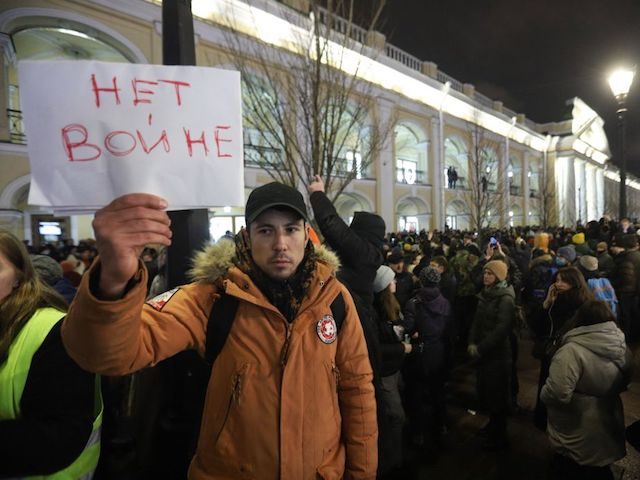Multiple reports published Thursday documented anti-war protests in over 50 cities throughout Russia that night, following violent crackdowns in response to strongman Vladimir Putin’s military assault of neighboring Ukraine.
Reports following the protests indicated over 1,400 arrests; Russian officials warned citizens that organizing peaceful assemblies against the war in Ukraine was illegal on Thursday, apparently hoping to discourage more mobilization against Putin.
Ukrainian President Volodymyr Zelensky has made multiple direct appeals to the Russian people to protest against the assault and in the name of Ukrainian citizens. On Thursday, Zelensky urged Russians, “I would very much like you to speak on Red Square or somewhere else on the streets of your capital, in Moscow, St. Petersburg and other cities in Russia. Not only in Instagram – it is very important.”

Police officers detain a demonstrator during a protest against Russia’s invasion of Ukraine in Moscow on February 24, 2022. (ALEXANDER NEMENOV/AFP via Getty Images)

Police officers detain a demonstrator during a protest against Russia’s invasion of Ukraine in central Saint Petersburg on February 24, 2022. (SERGEI MIKHAILICHENKO/AFP via Getty Images)

Police officers detain a demonstrator during a protest against Russia’s invasion of Ukraine in central Saint Petersburg on February 24, 2022. (SERGEI MIKHAILICHENKO/AFP via Getty Images)
The Moscow Times reported on Friday that the initial arrest toll had risen overnight to 2,000 people, citing the Russian watchdog agency OVD-Info, and noted that many of the arrests occurred in some of Russia’s largest cities: Moscow, St. Petersburg, Yekaterinburg and Novosibirsk.”
The American outlet Radio Free Europe/Radio Liberty (RFE/RL) reported that thousands of people assembled in Moscow alone demanding that Putin end his adventurism in Ukraine. It also documented the arrest of one of its journalists.
In Moscow alone, RFE/RL reported charges against 200 protesters on Friday. The total number of protesters is difficult to gauge. The Moscow Times explained in a separate report that some cities had what it described as “individual picketers” – one person often holding a sign reading “no to war” or similar sentiments. The newspaper noted that, kept to one person, the organizer does not need a legal permit to engage in the act of protest.
Solo pickets were also a popular form of protest in 2014 when Putin initially invaded Ukraine and colonized its Crimea region.
The Russian government issued several warnings on Thursday that objecting publicly to the war could result in imprisonment.
“One should be aware of the negative legal consequences of these actions in the form of prosecution up to criminal liability,” Russian law enforcement warned. “It should be remembered that holding a criminal record holds negative consequences and leaves a mark on the person’s future.”

COMMENTS
Please let us know if you're having issues with commenting.